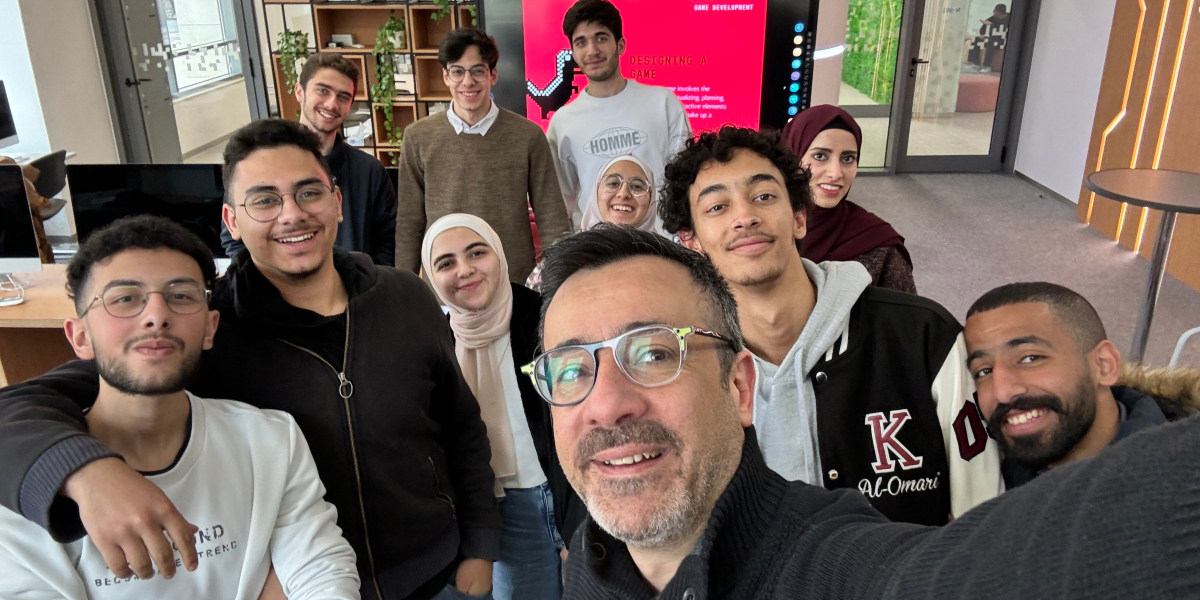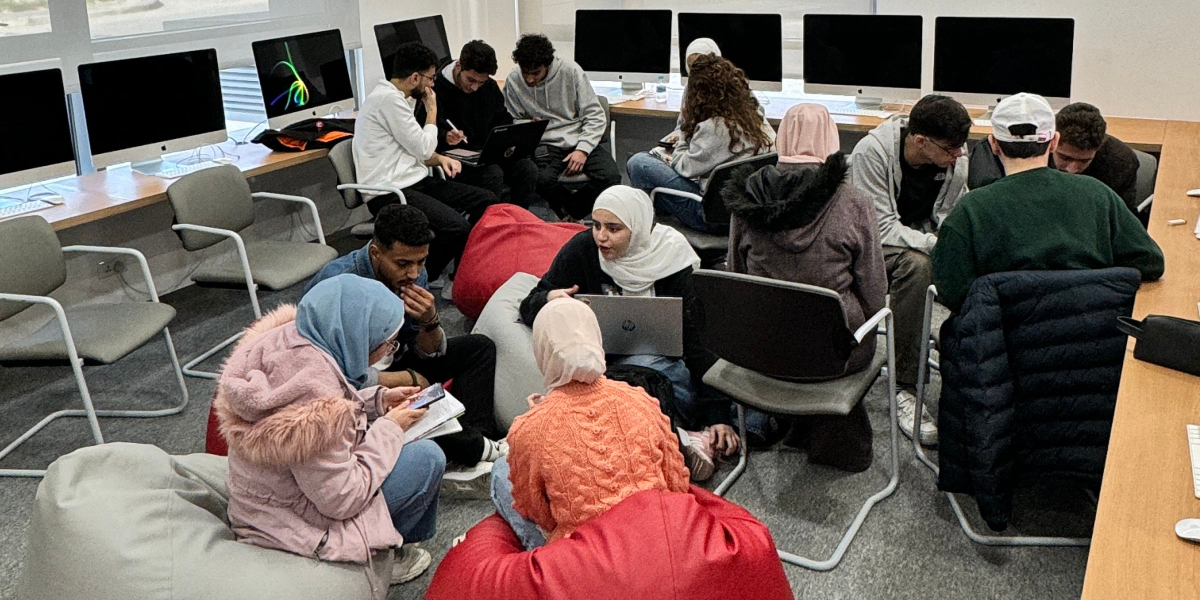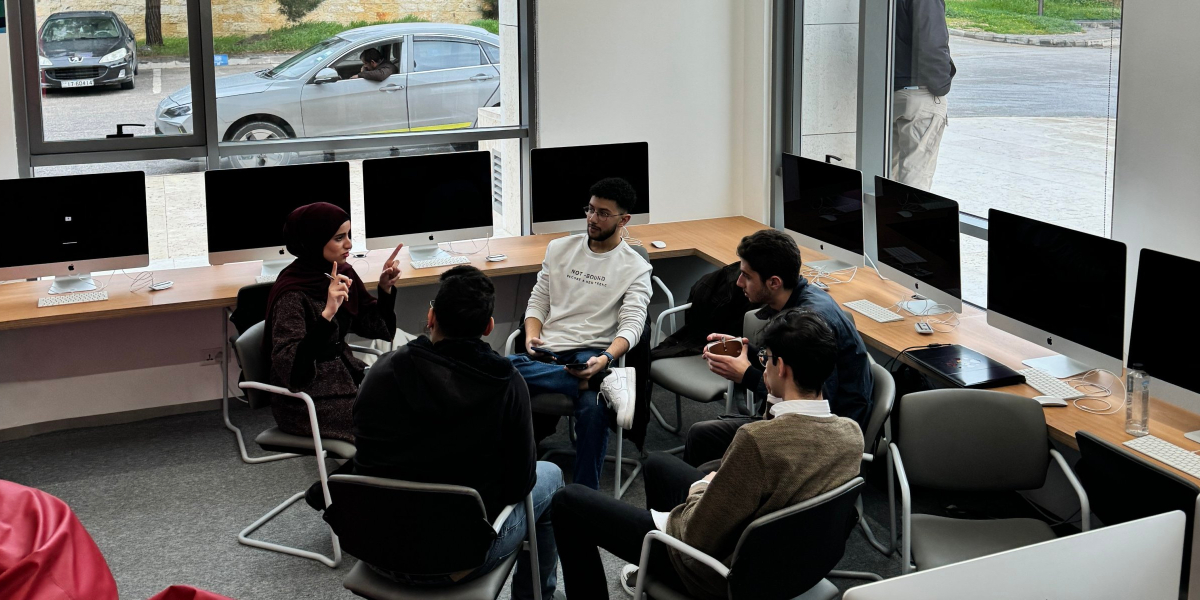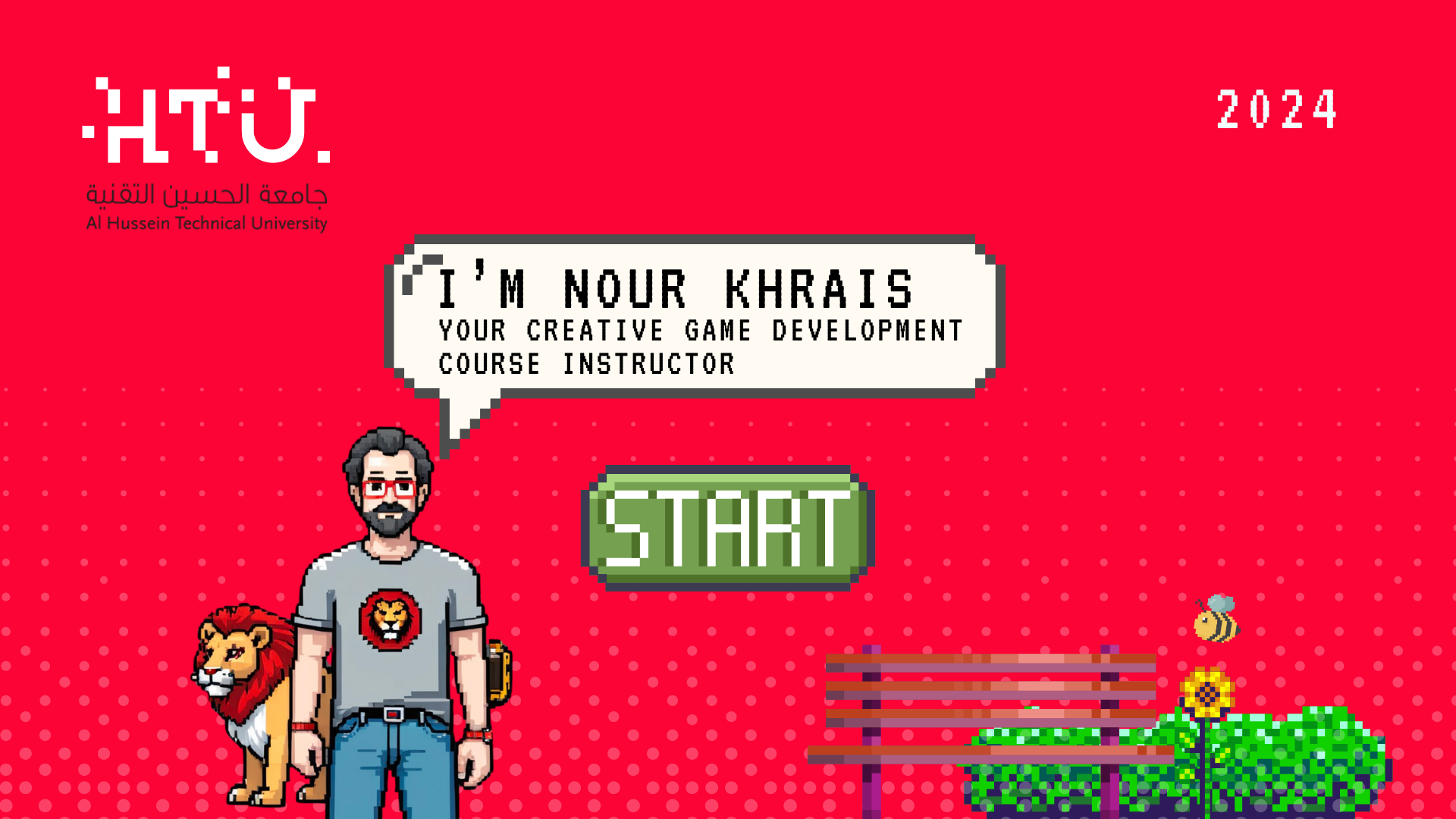Unveiling Creativity: Starting My Game Development Course at Al Hussein Technical University (HTU)
Embarking on a new quest in my gaming saga, after more than 20 years of crafting adventures in mobile gaming at Maysalward, I’ve unlocked an exciting bonus level at Al Hussein Technical University (HTU).
I’m privileged to share my expertise with aspiring game developers. Excitedly, I announce my role as an instructor for the Creative Game Development course. Through this venture, I aim to inspire and equip the next generation of game developers to create innovative mobile games that resonate globally.

After completing my doctoral studies, where I delved into the influence of localization and culturalization on mobile game success in the MENA region, I uncovered a pivotal insight. Tailoring games to diverse cultures and languages significantly enhances player engagement and retention. With this knowledge, I’ve integrated cultural significance and localization techniques into my game development process, underscoring the importance of a detailed Game Design Document.
By infusing mobile games with culturally relevant elements and employing localization strategies, we can offer players a truly immersive experience worldwide. I’m thrilled to introduce this concept to my students in the Creative Game Development course. Together, we’ll embark on a journey to conceptualize mobile games with precision, creativity, and attention to detail. We aim to present a comprehensive Game Design Document and a game prototype by the course’s conclusion.
This approach will empower students to outline crucial aspects such as gameplay mechanics, level design, art style, and monetization strategies—vital ingredients for success in the competitive app market. I eagerly anticipate witnessing the evolution and application of these insights and techniques as we refine our mobile game projects.
My educational journey began in 2011 when my team and I were entrusted with a transformative initiative by the King Abdullah II Fund. With a visionary outlook aimed at nurturing the next generation of Jordanian game developers, we laid the groundwork for the Gaming Lab and the App Challenge Program. Now spanning six locations across Jordan, the Gaming Lab boasts over 15,000 members actively honing their skills and working on game projects. Similarly, the App Challenge Program empowers students aged 14-16 to learn and develop their games, culminating in a spirited competition with the winning team receiving funding to establish a mini-gaming lab at their school.
My plan with my students involves establishing the foundational steps for creating a robust game development design document encompassing key aspects:
Firstly, we’ll focus on crafting a solid Game Development Document (GDD). This involves delineating the game’s vision, scope, and requirements—a vital step for project success.
Next, we’ll conduct thorough market research to understand the target audience, competition, and market trends, which are crucial for crafting a successful mobile game.
We’ll also emphasize the significance of building a prototype to test the initial game concept, allowing for validation and iteration of core mechanics and features.
Additionally, we’ll embrace the Scrum Agile Project management approach to streamline project development and ensure continuous feedback and collaboration among team members.

By addressing these challenges head-on, developers can navigate the complexities of mobile game development more effectively, increasing their likelihood of creating a successful and impactful title. The course outline for mobile game development at Al Hussein Technical University (HTU) covers key concepts, tools, and principles essential for creating successful mobile games:
1-Introduction to Mobile Game Development: Overview of the industry and critical concepts specific to mobile platforms.
2-Tools and Technologies: Exploration of game development tools and coding languages.
3-Game Design Principles: Understanding fundamental principles of effective game design.
4–User Experience (UX) Design: Delving into UX principles tailored for mobile games.
5–Project-Based Learning: I will guide students through practical projects to develop their mobile games. We will use Unity Bolt, a powerful visual scripting tool designed to simplify game development processes within the Unity engine. Blot allows my students to create complex behaviors and interactions through a node-based system without writing traditional lines of code, regardless of their coding background.

Teaching at HTU University represents an opportunity to contribute to the growth and innovation of the gaming industry. I am excited to be a part of shaping the future of game development in Jordan and beyond. I look forward to inspiring and guiding the next generation of game developers as they embark on their creative journeys. The impact of this educational initiative will be far-reaching and transformative. With a commitment to fostering creativity, innovation, and technical skills, I aim to create an inclusive and engaging learning environment where students feel empowered to explore their creative potential while mastering the technical aspects of game development. Together, we will explore the dynamic landscape of mobile game design, leveraging cultural insights and localization techniques to create immersive gaming experiences that resonate globally. As we embark on this journey, I am eager to witness the remarkable games that my students will create under my mentorship.
